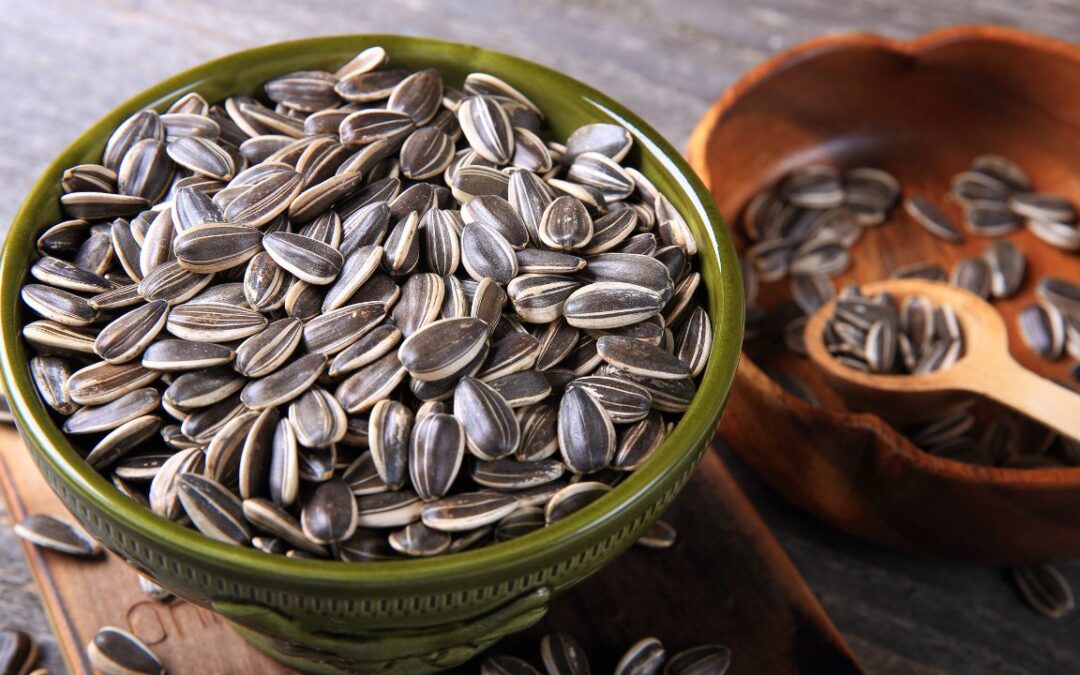Have you ever thought about how well you chew your food? As someone who’s spent a lot of time discussing physical exercise, I’ve mainly focused on everything below the neck. But since becoming a brain health specialist, I’ve realized that we also need to exercise from the neck up!
Our jaw muscles are some of the strongest in our bodies, and, like any other muscle, they need regular exercise to stay toned and efficient.
Today, I’m going to share more tips on how to make sure your jaw muscles get the workout they need to support your brain health. Let’s dive in!
The Benefits of Chewing
Research has shown that chewing increases blood flow to your brain, enhancing its oxygen supply. This, in turn, boosts the electrical activity of neurons, helping to keep your brain sharp and lower stress levels. My husband Oliver shared his experience with me, recounting how he used to chew sunflower seeds during long, congested drives home to stay awake. It turns out, it wasn’t the sunflower seeds per se that helped; it was the act of chewing itself. Chewing increased his blood flow, which helped him stay alert and focused.
Chewing with Dentures
You might wonder if chewing still benefits you if you wear dentures. The good news is, yes, it does! The focus isn’t on your teeth but on your jaw muscles. Even if you wear dentures, chewing can still exercise your jaw muscles, contributing to better brain health. You might need to be more selective about the types of food you chew, but the key is to keep those muscles active.
Tips for Effective Chewing
To ensure you’re chewing effectively, consider these tips:
- Chew Thoroughly: Instead of counting the number of chews, aim to turn your food into a slush before swallowing. The texture of the food will determine how many chews it takes—sometimes 10, sometimes 50.
- Take Small Bites: Avoid taking big bites of food. Large chunks can make it difficult to chew thoroughly and can lead to swallowing partially chewed pieces.
- Choose Whole Foods: Opt for whole fruits and vegetables over pre-cut or processed options. Whole foods require more chewing, giving your jaw muscles a better workout. For example, munch on a whole carrot instead of baby carrots or sliced carrots.
- Eat Raw and Crunchy Foods: Incorporate more raw foods into your diet. Lightly steaming or boiling vegetables can help maintain some crunch, ensuring your jaw muscles still get exercise.
- Swap Soft Foods for Chunky Options: When making soups, go for chunky varieties. Instead of a smooth tomato soup, leave some chunks in it. The same goes for smoothies—try smoothie bowls with whole fruits and nuts to add some crunch.
- Choose Whole Grains and Raw Nuts: Whole grain bread and raw, unsalted nuts are great choices. If you prefer nut butter, opt for crunchy versions to get that extra bit of chew.
Incorporating These Tips Into Your Diet
Here are some practical ways to incorporate these tips into your daily meals:
- Raw Vegetables: Snack on raw carrots, celery, and bell peppers. Pair them with hummus or your favorite dip.
- Fruits: Enjoy whole apples, pears, and berries. Make a fruit salad with chunks of various fruits instead of blending them into a smoothie.
- Whole Grains: Choose whole-grain bread and cereals that require more chewing. Avoid overly processed, soft bread.
- Nuts: Snack on raw almonds, walnuts, and cashews. Add them to salads, yogurt, or oatmeal for extra crunch.
- Chunky Soups: When making soup, add chunks of vegetables, beans, and lean meats. This not only adds texture but also ensures you’re giving your jaw muscles a workout.
Receive Text From Me
I’m excited to share a new service where I can send brain health tips and charts straight to your phone. If you’re interested in receiving helpful, relevant information about brain health from time to time, you can sign up through the link I’ll provide. This service is free and designed to keep you informed and motivated on your brain health journey.
Conclusion
Chewing is an often-overlooked activity that can have significant benefits for your brain. By paying more attention to how and what you chew, you can improve blood flow to your brain, enhance neuron activity, and reduce stress. Remember, it’s not about the number of chews but about turning your food into slush and keeping your jaw muscles active. Incorporate whole foods, raw vegetables, and crunchy snacks into your diet to give your brain the best support possible. And don’t forget to sign up for my free service to get regular brain health tips sent straight to your phone!
Stay healthy and keep chewing!
Learn More From Me
If you’re interested in learning more about this topic, or if you want advice that’s just right for you, consider attending one of my free Better Brain Masterclasses. These classes give you great tips and strategies for keeping your brain sharp as you get older. For more resources on digestive health and the Bristol Stool Chart, be sure to check out my resource library and don’t forget to connect with our supportive community on Facebook. Together, we can make the most of every brain-boosting opportunity!
If you’re ready to take your brain health to the next level, consider joining the KYBS Partners Club, a monthly membership program that provides exclusive access to resources, recipes, and personalized support from me. I’d love to have you on board!
Cheers! 🥤✨
Disclaimer: This post contains affiliate links, which means if you purchase through these links, I may receive a small commission at no extra cost to you. I only promote products from people I trust and who I have purchased from in the past.




